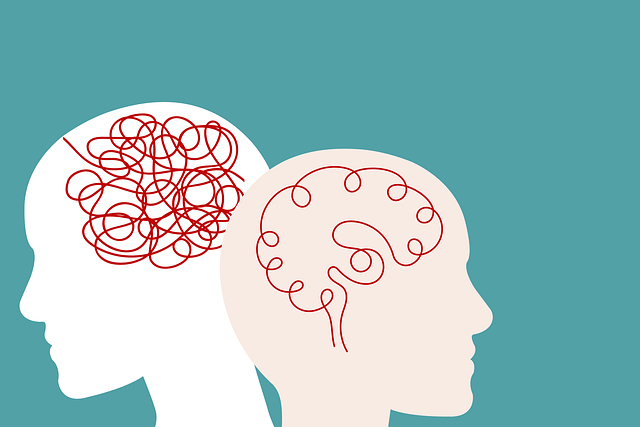TL;DR:
Therapy for young children's self-esteem is vital for their development, fostering resilience and healthy relationships. Public awareness campaigns destigmatize mental health issues and encourage early intervention, normalizing help-seeking behaviors. These initiatives involve educating parents and caregivers through interactive workshops and accessible resources to recognize and address mental health concerns. Measuring impact through surveys, interviews, or observational studies assesses campaign success in knowledge, attitudes, and behavioral changes, such as improved emotional regulation techniques and well-being. Additionally, burnout prevention strategies for healthcare providers ensure they maintain a healthy work-life balance while delivering quality care.
Public awareness campaigns play a pivotal role in shaping societal perceptions and fostering mental well-being. This article explores the multifaceted approach to enhancing public understanding, particularly focusing on young children’s self-esteem—a cornerstone of their development. We delve into strategies for designing impactful campaigns, engaging parents and caregivers as key allies, and measuring success through evaluation. By understanding the foundations of self-esteem in therapy for young children, we can create initiatives that leave a lasting positive impact on both individuals and communities.
- Understanding Young Children's Self-Esteem: The Foundation for Growth
- Designing Effective Public Awareness Campaigns for Mental Health
- Engaging Parents and Caregivers: A Key Component of Success
- Measuring Impact: Evaluating the Effectiveness of Public Awareness Initiatives
Understanding Young Children's Self-Esteem: The Foundation for Growth

Understanding young children’s self-esteem is a crucial foundation for their overall development and well-being. At a young age, children begin to form their sense of self, influenced by various factors including their interactions with caregivers, peers, and the environment around them. Building strong self-esteem in childhood can enhance their ability to cope with challenges, manage emotions, and foster healthy relationships later in life.
Through therapy for young children’s self-esteem, professionals can help nurture this crucial aspect of development. This includes implementing coping skills development strategies to empower kids to handle stress reduction methods effectively. Additionally, social skills training plays a vital role in enhancing their interaction with others, promoting empathy and positive peer relationships. By addressing these areas, we lay the groundwork for children to grow into confident and resilient individuals capable of navigating life’s complexities.
Designing Effective Public Awareness Campaigns for Mental Health

Designing effective public awareness campaigns for mental health is a multifaceted task that requires understanding the unique needs and challenges faced by different demographics, particularly young children. These campaigns should aim to destigmatize mental health issues, promote early intervention, and encourage access to appropriate therapy for young children. By focusing on building self-esteem and resilience from a young age, society can foster an environment where seeking help is normalized.
In the context of healthcare, burnout prevention strategies for providers are crucial complementaries to these campaigns. Mental health professionals must also be encouraged to prioritize their own mental well-being, as research indicates that risk assessment and positive thinking play significant roles in maintaining a healthy work-life balance. These efforts collectively contribute to creating a supportive ecosystem where both children and adults can access necessary support for their mental health.
Engaging Parents and Caregivers: A Key Component of Success

Engaging parents and caregivers is a pivotal aspect of successful public awareness campaigns aimed at therapy for young children. By involving these primary influencers in a child’s life, initiatives can effectively foster mental wellness and self-esteem development. Caregivers play a crucial role in teaching coping skills and empathy building strategies that are essential for a child’s emotional growth.
When parents and caregivers are equipped with the right knowledge and resources, they become powerful advocates for their children’s mental health. Through interactive workshops, informative webinars, and accessible literature, campaigns can empower these key figures to recognize and address any concerns, ensuring a positive impact on young minds.
Measuring Impact: Evaluating the Effectiveness of Public Awareness Initiatives

Measuring impact is a vital step in evaluating the effectiveness of public awareness initiatives, especially when focusing on sensitive topics like therapy for young children and self-esteem development. By employing robust evaluation methods, organizations can ascertain the reach, resonance, and resulting actions sparked by their campaigns. This involves tracking changes in knowledge, attitudes, and behaviors among the target audience, often through surveys, interviews, or observational studies.
For instance, assessing the impact of a public awareness campaign promoting Self-Care Routine Development for Better Mental Health might include measuring participants’ newfound understanding of emotional regulation techniques, their willingness to adopt such practices, and improvements in overall well-being. Similarly, evaluating Healthcare Provider Cultural Competency Training could focus on enhanced cultural sensitivity among staff, improved patient outcomes, and increased satisfaction rates within diverse communities.
Public awareness campaigns play a pivotal role in promoting mental health, especially among young children. By understanding the foundation of self-esteem and engaging parents and caregivers, we can create impactful initiatives that foster healthy development. These efforts not only enhance public knowledge but also encourage early intervention through therapy for young children’s self-esteem, ultimately leading to better outcomes for their mental well-being. Effective campaigns, designed with care, have the potential to revolutionize how society supports vulnerable populations.













